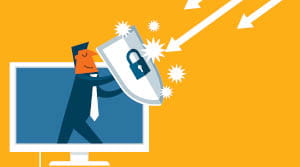How to avoid overdrafts: essential bank account management tips

For decades, financial institutions have charged overdraft fees for the service of paying for a transaction that costs more than the amount of funds available in the account. By making this courtesy payment, it’s as if the credit union or bank is lending money without charging interest. While some banks have reduced or eliminated overdraft fees, developing good money management habits will help you save money and pursue your financial goals for the long haul.
Here’s one example of why it’s smart to always keep enough money in your account: In cases where there are not enough funds to cover an amount, the transaction can be automatically declined, and in these situations, the business or other third party you intend to pay could charge you a fee even if your financial institution doesn’t. Fortunately, Banner and many other banks offer tools and resources to help you keep tabs on the money in your account.
Tips to manage your account, avoid overdrafts and save money:
Set up account security alerts
You can activate automatic alerts so you will be notified by voice, email or text messages anytime your balance falls below the amount you set. That may give you time to deposit or transfer money into the account, delay a payment or ease up on spending until your paycheck arrives. To help protect your account, you can set alerts for recent transactions and unauthorized access. Learn more about account alerts.
Be careful using your debit card
Some people avoid using their debit cards for lots of small purchases because the transactions can be hard to keep track of and quickly add up. Also, some companies, such as hotels and car rental firms, may put a hold on your card that is as much as or more than your full bill.
Activate debit card controls
Available at some banks, this feature lets you determine when, how and where your card is used. You can set spending limits and real-time alerts so you know when your card is used and if a transaction is declined. You can even protect your debit card if it’s lost or stolen by turning it off with a tap. If you find your card later, turn it back on with ease. You can access Banner’s Debit Card Controls service through our Online Banking and Mobile Banking.
Use direct deposit
Setting up direct deposit with your employer or for government benefits helps ensure that you receive and can use your funds as quickly as possible, instead of waiting for a check to arrive in the mail and depositing it yourself. Direct deposit is fast, secure and predictable so you can plan your payments around it.
Routinely check your account balances
While automated texts and alerts are a great help, it’s smart to regularly review your account. We recommend checking your balance once or twice a week so you can deposit funds into the account or adjust your spending if needed. It’s easy with features like Online Banking and Mobile Banking. Also, consider keeping a little extra in money in your account as a cushion.
Link to another account for overdraft protection
Most banks offer an option to link to another account, like a savings account, at the same institution for overdraft protection. That way, if there are not enough funds in your spending or checking account to cover a transaction, the needed money would be transferred to cover it. The overdraft protection transfer may involve a fee, but these fees are generally lower than overdraft fees and will help you avoid having your transaction denied. Banner does not charge a fee to transfer funds for overdraft protection.
Use a personal financial management tool
Many banks offer their clients an app for budgeting. Banner’s free Personal Financial Management lets you see all your accounts in one spot, track your spending, build and set budgets, calculate your net worth, pursue your savings goals and more. You can learn how to enroll through our digital banking demos.
While you may not use all of these tips, applying the tools that work best for you is a great way to stay on track and develop good savings and money management habits, which can help you reach your savings goals. To learn more, read our blog on tips to Improve Your Financial Health or visit with a banker at a Banner branch near you.
























